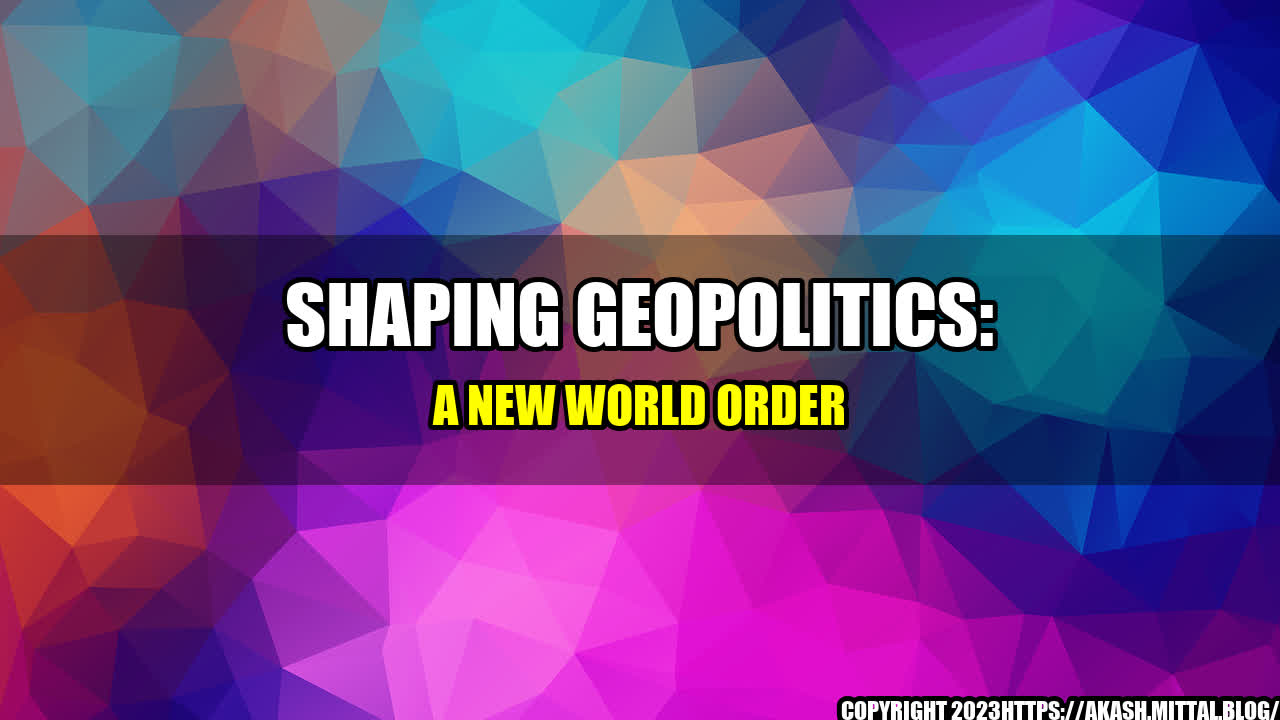There was once a time when the world was divided neatly into separate nation-states, each with its own borders, languages, and cultures. But today, the lines that separate countries are becoming more and more blurred, thanks to a complex tangle of geopolitical factors that are shaping the global landscape in ways we never imagined possible.
Consider, for example, the rise of China. Just a few decades ago, this nation was known primarily for its massive population and its concentration of poverty. But since then, China has become a major global power, with a booming economy, a growing military presence, and a culture and identity that are increasingly influential across the globe.
Other factors are also contributing to the reshaping of the geopolitical landscape. Climate change, for instance, is causing sea levels to rise, forcing nations to alter their coastlines and grapple with new environmental realities. At the same time, technological breakthroughs are creating new opportunities for collaboration and innovation, bringing people and ideas together across great distances.
So what does this all mean for the future of the world? In many ways, the future is uncertain. But one thing is clear: the geopolitical forces that are shaping our world today are more powerful than ever before, and they will continue to have a profound impact on our lives in the years to come.
Examples of Geopolitical Shaping
- The rise of China and the shift of global power from West to East
- The ongoing conflict in Syria and its ripple effects throughout the region and beyond
- The effects of climate change on global coastlines, economies, and ecosystems
- The transformative impact of new technologies, such as AI, automation, and blockchain
The Future of Geopolitics: Three Possible Scenarios
Based on current trends and emerging forces, there are three possible scenarios for the future of geopolitics:
- The Rise of Multipolarity: In this scenario, power becomes increasingly dispersed among multiple actors, as China, the US, Europe, and other regions all jockey for position in a multipolar world.
- The Return of Polarized Bipolarity: In this scenario, power becomes concentrated among two main poles, with the US and China emerging as the dominant players on the world stage.
- The Emergence of a New Global Order: In this scenario, new global institutions and norms emerge to address the complex challenges facing the world, ushering in a new era of cooperation and progress.
Practical Tips for Navigating a Changing World
- Stay informed about global trends and emerging issues.
- Seek out diverse perspectives and viewpoints.
- Be adaptable and flexible in your thinking and approach.
- Invest in education and skills that will be in demand in the future.
- Build international networks and develop cross-cultural competencies.
Conclusion
Today's geopolitics are complex, multifaceted, and constantly evolving. Nevertheless, by staying informed, fostering diversity, and developing key skills and competencies, individuals and organizations can put themselves in a strong position to navigate the changing world of the 21st century.
The key takeaway is that, no matter what the future holds, we must remain alert and engaged, constantly seeking out new opportunities and preparing ourselves for the challenges that lie ahead. Only in this way can we hope to shape the world in a positive way, leaving a lasting legacy for future generations.


Curated by Team Akash.Mittal.Blog
Share on Twitter Share on LinkedIn